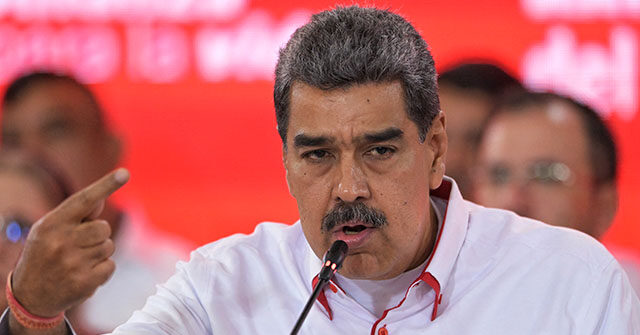Venezuela’s socialist regime has escalated tensions with its leftist neighbors, Brazil and Colombia, by recalling its ambassador to Brazil and issuing threats against Colombia’s Foreign Minister, Luis Murillo. These actions align with Venezuela’s response to Brazil’s exclusion of the country from the BRICS coalition during the recent summit in Kazan, Russia, and Murillo’s announcement that Colombia will not recognize the results of Venezuela’s recent presidential election unless the regime provides credible evidence of vote tallies. Nicolás Maduro, who claims to have won the election held in July, is set to be “inaugurated” for another term on January 10, 2025. The remarks from Murillo prompted stern warnings from Maduro’s officials, indicating the fragile state of relations between Venezuela and these supportive countries.
The Maduro regime’s decision to recall its ambassador, Manuel Vadell, was accompanied by strong criticism directed at Brazilian officials, particularly Celso Amorim, who represents President Luiz Inácio Lula da Silva’s foreign policy. Venezuela accused Amorim of acting as a representative of “U.S. imperialism” by questioning the legitimacy of the recent election according to which Maduro declared victory. This diplomatic fallout contrasts sharply with Lula’s past relationships with Venezuela; however, following Brazil’s omission of Venezuela from BRICS, the camaraderie has swiftly disintegrated, resulting in accusations of aggression undermining diplomatic ties.
In the wake of the election, which critics label a sham, the Maduro regime faced widespread protests due to the refusal to disclose vote data, a requirement under Venezuelan law. Reports indicate that over 27 people have been killed and thousands detained during the regime’s crackdown on dissent. While the international community largely condemned Maduro’s actions, few leftist leaders in the region have taken a firm stand against the regime, aside from Chile’s President Gabriel Boric. Instead, both Colombia’s Gustavo Petro and Brazil’s Lula have attempted a mediatory role, though their efforts have yielded little progress or impact.
Calls for further transparency regarding the Venezuelan election have come from Brazil and Colombia, yet Mexico’s newly-elected President Claudia Sheinbaum has stated that her administration will maintain an impartial stance in the ongoing conflict. Amorim explained that Brazil’s decision to exclude Venezuela was not a direct condemnation of the government but was precipitated by a breach of trust related to the Maduro regime’s failure to disclose requested voter data. There is an underlying frustration within Brazil’s government about perceived promises made by Maduro, which were not fulfilled.
Maduro’s aspiration to secure a position in the BRICS coalition has been a longstanding goal, yet recent developments have left him feeling isolated, particularly as he had anticipated a favorable outcome from the latest summit. In a bid to cope, Maduro has claimed that Venezuela has had ties to BRICS for over 200 years, despite the coalition’s formation occurring in 2009. Infuriated by Brazil’s stance, some Venezuelan officials have gone so far as to allege that Lula orchestrated a deliberate plot to keep Venezuela from joining BRICS by faking a head injury to avoid appearing at the summit in person.
Tensions escalated further when Yván Gil, Venezuela’s Foreign Minister, expressed his ire towards Murillo’s declarations, accusing him of acting under pressure from the U.S. and domestic opposition forces. Gil threatened that Venezuela would respond to Colombia’s interference in its internal affairs, suggesting a significant deterioration of relations between the three countries. This strife raises questions about solidarity within the so-called leftist “pink tide” that has characterized recent political shifts in the region, particularly following Lula’s controversial victory in 2022 over Jair Bolsonaro. As the landscape evolves, the precarious cohesion among leftist nations in Latin America is increasingly fragile, underscoring the potential for further geopolitical shifts.

